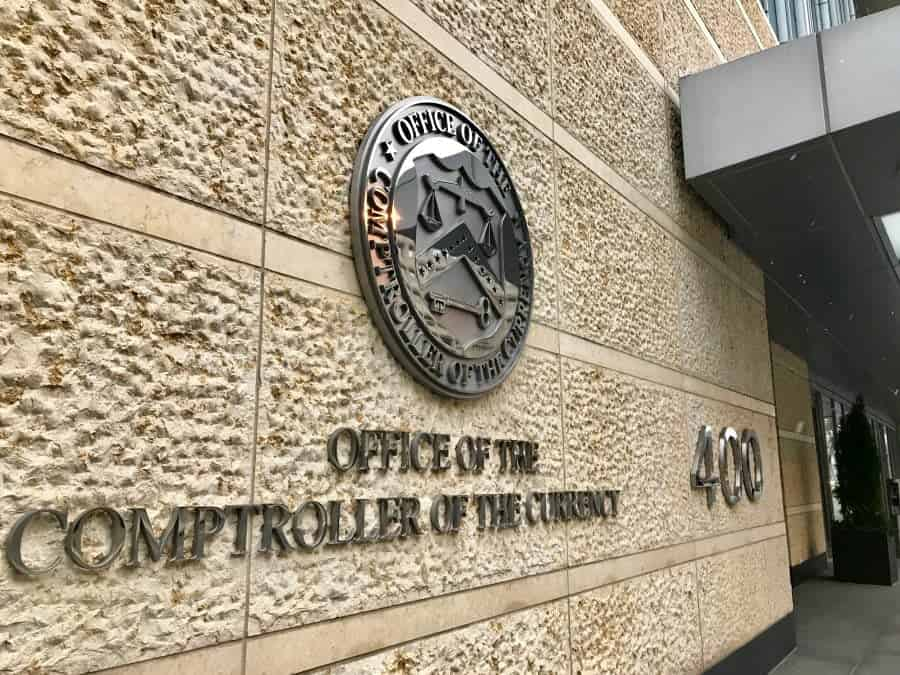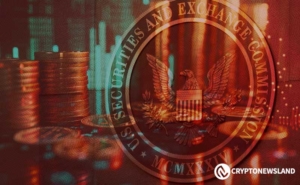OCC ends reputation risk examinations amid backlash from the crypto industry over debanking
Quick Take Lawmakers and the crypto industry have argued that digital asset firms face unique challenges when looking to establish and maintain bank accounts in the U.S. The OCC also said it would be removing references to reputation risk from its handbooks and guidance, though noted that it would not change its expectation on how banks handle risks.

The U.S. Office of the Comptroller of the Currency said it has ended examining national banks and other financial institutions for reputation risk following condemnation from the crypto industry over being cut out from the financial sector.
In a statement released on Thursday, the OCC Acting Comptroller of the Currency Rodney E. Hood said the agency's examination process has been focused on "appropriate risk management processes," not on drawing judgment on certain activities.
"The OCC has never used reputation risk as a catch-all justification for supervisory action," Hood said. "Focusing future examination activities on more transparent risk areas improves public confidence in the OCC’s supervisory process and makes clear that the OCC has not and does not make business decisions for banks."
The OCC also said it would be removing references to reputation risk from its handbooks and guidance, though noted it would not change its expectation on how banks handle risks.
The OCC also recently set out to clarify that crypto activities are allowed in the federal banking system, representing a major reversal of its previous position.
Lawmakers and the crypto industry have argued that digital asset firms face unique challenges when looking to establish and maintain bank accounts in the U.S. Last week, the Senate Banking Committee voted to advance a bill that would eliminate references to reputational risk as a way for federal regulators to supervise financial institutions. The vote was divided among party lines, with no Democrats in support.
The bill, introduced by Senate Banking Committee Chair Tim Scott, R-S.C., addresses other reputational risks, including "disfavored political groups." The Federal Reserve defines reputational risk as the "potential that negative publicity regarding an institution's business practices, whether true or not, will cause a decline in the customer base, costly litigation, or revenue reductions."
Operation Choke Point?
President Donald Trump has also vowed to end "Operation Choke Point 2.0," wording often used when discussing crypto debanking. That phrase was coined by Castle Island Ventures co-founder Nic Carter in 2023, drawing a comparison to Operation Choke Point 1.0, a 2013 U.S. Department of Justice Initiative that sought to limit banking services for industries considered high-risk for fraud and money laundering, including payday lenders and firearm dealers.
There have been murmurs that Trump could issue a crypto debanking-related executive order, but that has not yet come to fruition.
The OCC's call to remove reputational risk was a "good move," said Custodia Bank CEO Caitlin Long on Thursday in a post on X.
" It was subjective & was captured by some politically-motivated managers at the federal bank regulators for use as their cudgel against industries & people they didn’t like," Long said.
Disclaimer: The content of this article solely reflects the author's opinion and does not represent the platform in any capacity. This article is not intended to serve as a reference for making investment decisions.
You may also like
Sei Investments increases 39% stake in MicroStrategy

Fidelity Spot Solana ETF Gains Traction As SEC Acknowledges Filing

Paul Atkins Moves Closer to SEC Chair Role After Senate Committee Approval

Lawmakers Request SEC Records on WLFI Over Trump Family’s Reported Financial Ties

